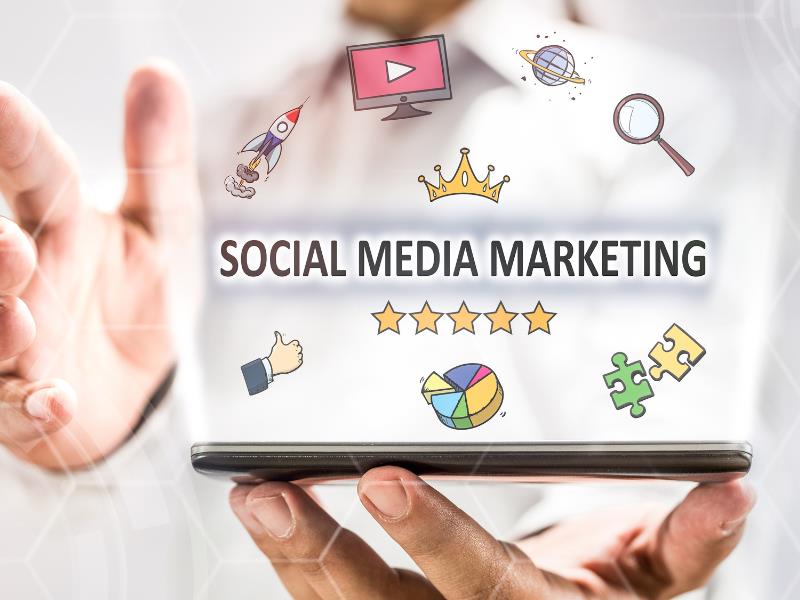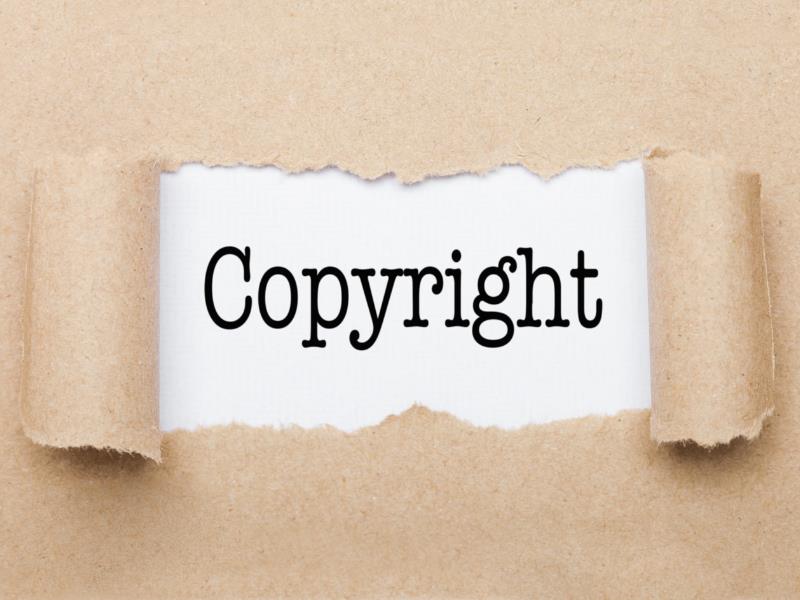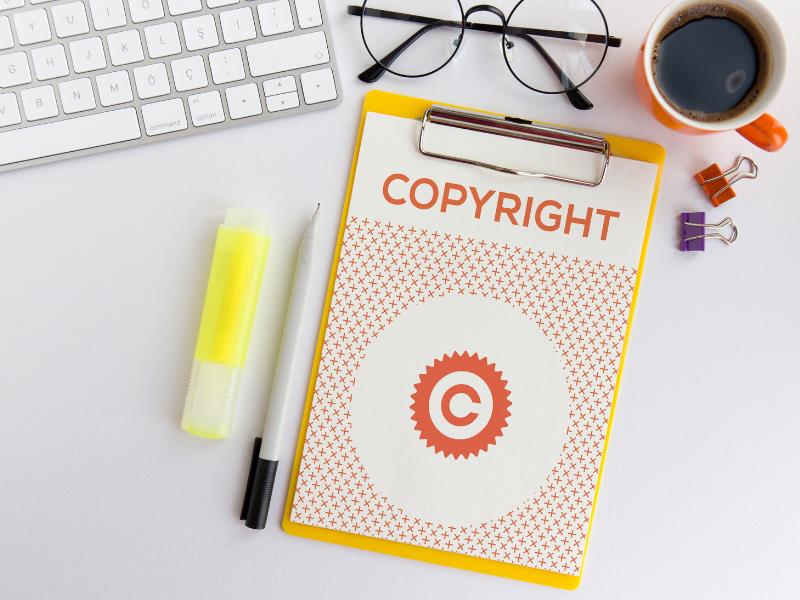||

If you use Facebook, Twitter, and other social media marketing tools to promote your business (and who doesn’t these days?), then you know there are social media etiquette rules that your business should follow.
Break the rules, and your marketing results will plummet.
But did you know there are also copyright rules for social media that your business needs to follow if you want to stay out of expensive legal trouble?
Unfortunately, copyright law gets a bad rap. Spend some time reading through tweets in the #copyright hashtag on Twitter, and you’ll see one angry tweet after another from people whose YouTube videos got taken down due to copyright complaints.
Yes, copyright laws do need to be updated to better address the digital world that we live in today (the U.S. Copyright Law hasn’t been revised since 1976), but whether or not you agree with the law, you have to follow it.
With that in mind, here are some tips to help you follow the most basic copyright rules when you promote your business online and engage with people through social media marketing.
1. Assume Your Use is Not Covered by Fair Use
Fair use is a sticky, cloudy, messy, confusing, insert similar adjectives of your choice, slope. Fair use was created to allow limited use of a copyrighted work for reasonable purposes without having to actually get the owner’s permission to use it. Fair use doesn’t mean free use.
There is a four-part test that is typically used to determine if use is fair use or not. Ask yourself these four questions before you deem your use of someone else’s creativity to be fair use because not only might the owner disagree with you, the law might disagree, too:
- What is the purpose and character of the use of the work?
- What is the nature of the copyrighted work?
- What part of the work was used compared to the whole?
- What is the effect of the use of the work on the potential value or market of the original copyrighted work?
Be careful because even the four-part test can get a bit muddied and subjective when it’s interpreted in real-life situations. This is a lesson that many bloggers have learned the hard way over the years when they received the Getty Images Demand Letter.

2. Make Sure You Own It (or Have Permission to Use It) before You Publish It
Owner and author (or creator) are not the same thing, and the difference between owner and author can mean the difference between your getting into big and expensive trouble or not.
Your business owns creative works that your employees create while working for your company. Your business does not own creative works that freelancers and other contractors create for you unless you have a Work-Made-For-Hire-Agreement in place with them that identifies you as the owner.
Furthermore, your business is not the owner of creative works that you license from the respective owners. For example, if you purchase an image through a stock photo website to use on your blog, you’ve been given permission to use it in very specific ways through a licensing agreement. Read that agreement thoroughly so you don’t violate the terms!
3. Don’t Fight the DMCA, Understand It and Abide by It
The Digital Millennium Copyright Act (DMCA) provides a safe harbor to online service providers (including Web hosts and social media sites) so their liability is limited if one of their users publishes content that is a copyright infringement. Under the DMCA, online service providers must take down content that could violate a copyright when the copyright owner sends a take-down request.
This is what’s happening to all of those YouTube users who are complaining on Twitter, but what they don’t understand — and as a business owner, what you must understand — is that there is a process to respond to the take-down request if you believe you have not infringed on someone else’s copyright. If there wasn’t an infringement, then by all means, you should respond.
Additionally, if someone publishes your content or other creative work without your permission, then you have the right to send a DMCA Take-Down Request to the online service provider too. It’s your responsibility to police and enforce your copyrights.

4. Beware of Creative Commons
Creative Commons is a nonprofit organization that was created to provide creators of original works an easier way to give others permission to use their original creative work than the U.S. Copyright Law allows. But there are problems with Creative Commons, and those problems can be very expensive to your business.
Most importantly, if you use an image or creative work with a Creative Commons license on it, the person who applied that license might not actually be the copyright owner. That means the Creative Commons license is meaningless and you could be infringing on the owner’s copyright if you use it in your social media marketing.
Furthermore, the Creative Commons organization absolves itself of any problems you might have with its licenses in the future within its terms of use. If something goes wrong, you’re on your own, and since Creative Commons has no legal significance, it won’t help you in a legal battle.
5. Get Federal Copyright Registration for Your Creative Work
You become the copyright owner of your work when it’s fixed in a tangible medium (assuming it’s copyrightable), but when your work is federally registered, you can enforce your rights under federal copyright laws. No, you don’t have to register your work to own the copyright, but doing so turns your rights into federal statutory rights, which means your rights are enforced under federal law statute — the copyright law passed by Congress.
As a copyright owner, you get a bundle of exclusive rights to reproduce your work, distribute copies of your work, prepare derivative works from your original work, perform your work, and display your work. Even if you don’t think your creative work has value today, it has tremendous potential value, and your business could lose money if someone else uses it without your permission.
By obtaining federal copyright registration for your work within 90 days of first publication (or the first time it was made available to the public), you can collect fees and damages without having to prove actual damages. This is a huge benefit to your business!

Navigating User-Generated Content: Rights and Responsibilities
Engaging with user-generated content is a common practice in today’s social media landscape. However, it’s crucial to navigate this terrain with care, considering both the rights of content creators and your business’s responsibilities. Here are essential points to consider:
- Respect Creator’s Intent: When sharing or reposting user-generated content, respect the original creator’s intent. Always give proper credit and consider seeking permission, especially if you plan to use the content for commercial purposes.
- Understand Licensing: User-generated content might come with specific licenses or terms of use. Some content creators willingly share their work under Creative Commons licenses, while others expect compensation or acknowledgment. Be aware of the license type associated with the content you’re using.
- Moderation and Consent: If you encourage users to submit content, clearly outline your usage terms and obtain their consent to share their submissions. Implement a clear and transparent moderation process to ensure that inappropriate or copyrighted material doesn’t get published without your knowledge.
- Handling Copyright Claims: In the event that a user claims their content was used without permission, have a process in place to address their concerns promptly. Open communication and resolving such claims amicably can prevent legal issues.
- Balancing Freedom and Guidelines: While user-generated content adds authenticity to your brand, establish guidelines to ensure that submissions align with your business values and don’t infringe upon copyright or intellectual property rights.
| Points to Consider | Description |
|---|---|
| Respect Creator's Intent | When sharing user-generated content, show respect for the original creator's intentions. Provide proper credit and consider seeking permission, especially if using the content for commercial purposes. |
| Understand Licensing | User-generated content often comes with specific licenses or terms of use. Be aware of the license type associated with the content, whether it's under Creative Commons or requires compensation. |
| Moderation and Consent | If encouraging user submissions, clearly define usage terms and secure their consent for sharing. Maintain a transparent moderation process to prevent inappropriate or copyrighted content from being published. |
| Handling Copyright Claims | In case of claims that content was used without permission, have a process to address concerns promptly. Open communication and amicable resolution can prevent legal complications. |
| Balancing Freedom and Guidelines | While user-generated content adds authenticity, establish guidelines to ensure submissions align with business values and respect copyright and intellectual property rights. |

By approaching user-generated content with respect, understanding, and a clear framework, you can harness its potential while safeguarding your business from legal and reputational risks.
The Takeaway
This dedication to copyright compliance doesn’t merely shield your business from potential legal repercussions; it also fosters a climate of trust and respect within your industry and among your audience. As you conscientiously navigate the complex labyrinth of copyright laws, you contribute to a larger ecosystem where intellectual property rights are upheld and creators are acknowledged. This commitment ripples outward, inspiring confidence among stakeholders, collaborators, and customers alike.
As the digital landscape continues to evolve, copyright considerations will remain at the forefront of responsible business practices. Embracing this reality is not only a strategic maneuver but also a moral imperative. By staying informed about copyright regulations, actively promoting awareness within your team, and establishing clear guidelines for content usage, you build a resilient foundation for your business’s future endeavors. Your efforts reverberate far beyond compliance—they resonate with the principles of integrity, innovation, and respect for creativity in a world where digital content weaves the intricate threads of modern commerce and communication.
In the grand tapestry of the digital age, your commitment to mastering copyright regulations becomes a defining thread that weaves through your business’s narrative. It speaks volumes about your dedication to doing right by creators, customers, and the digital community at large. With each conscious decision to respect copyright rules, you strengthen the bonds of trust, forge ethical connections, and set a precedent for the responsible engagement that defines the new era of business conduct.
Social Media Photo via Shutterstock
This article, "Social Media Marketing Copyright Rules for Businesses" was first published on Small Business Trends
||----------------------------------------------------------------
By: Kelley Keller
Title: Social Media Marketing Copyright Rules for Businesses
Sourced From: smallbiztrends.com/2023/08/copyright-rules-for-social-media.html
Published Date: Mon, 28 Aug 2023 10:00:42 +0000






